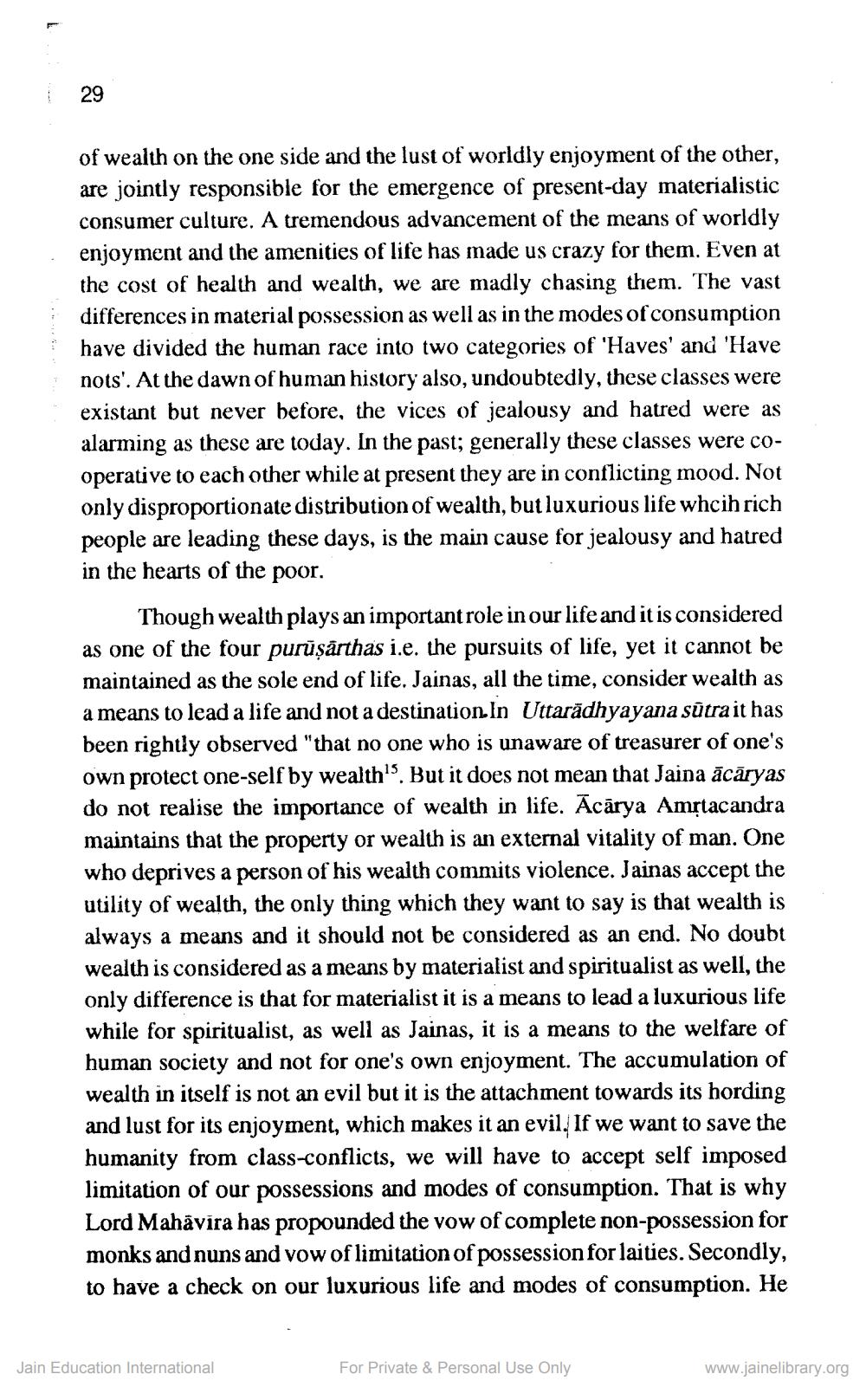________________
of wealth on the one side and the lust of worldly enjoyment of the other, are jointly responsible for the emergence of present-day materialistic consumer culture. A tremendous advancement of the means of worldly enjoyment and the amenities of life has made us crazy for them. Even at the cost of health and wealth, we are madly chasing them. The vast differences in material possession as well as in the modes of consumption have divided the human race into two categories of 'Haves' and 'Have nots'. At the dawn of human history also, undoubtedly, these classes were existant but never before, the vices of jealousy and hatred were as alarming as these are today. In the past; generally these classes were cooperative to each other while at present they are in conflicting mood. Not only disproportionate distribution of wealth, but luxurious life whcih rich people are leading these days, is the main cause for jealousy and hatred in the hearts of the poor.
Though wealth plays an important role in our life and it is considered as one of the four purūṣārthas i.e. the pursuits of life, yet it cannot be maintained as the sole end of life. Jainas, all the time, consider wealth as a means to lead a life and not a destination. In Uttarādhyayana sūtra it has been rightly observed "that no one who is unaware of treasurer of one's own protect one-self by wealth's. But it does not mean that Jaina ācāryas do not realise the importance of wealth in life. Ācārya Amrtacandra maintains that the property or wealth is an external vitality of man. One who deprives a person of his wealth commits violence. Jainas accept the utility of wealth, the only thing which they want to say is that wealth is
ways a means and it should not be considered as an end. No doubt wealth is considered as a means by materialist and spiritualist as well, the only difference is that for materialist it is a means to lead a luxurious life while for spiritualist, as well as Jainas, it is a means to the welfare of human society and not for one's own enjoyment. The accumulation of wealth in itself is not an evil but it is the attachment towards its hording and lust for its enjoyment, which makes it an evil. If we want to save the humanity from class-conflicts, we will have to accept self imposed limitation of our possessions and modes of consumption. That is why Lord Mahavira has propounded the vow of complete non-possession for monks and nuns and vow of limitation of possession for laities. Secondly, to have a check on our luxurious life and modes of consumption. He
Jain Education International
For Private & Personal Use Only
www.jainelibrary.org




